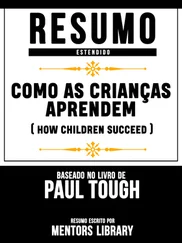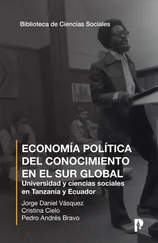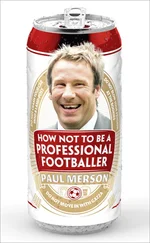conscientiousness. See also self-control
consciousness
Consortium on Chicago Schools Research
Cook County Juvenile Temporary Detention Center in Chicago
cortisol levels. See also stress-response system
counseling
Cowley, Michelle
CPA (character point average)
cross-fostering studies
Crossing the Finish Line (Bowen, Chingos, & McPherson)
Csikszentmihalyi, Mihaly
Daley, Richard (Chicago mayor)
Danson, Ted
Dark Knights of Harlem
decision making
Deep Blue
de Groot, Adriaan,
delayed gratification. See also self-control
depression
The Development of the Person (Egeland and Sroufe)
discipline, and middle school students
DNA-related effects, and parenting behaviors
Dowling, Jane Martinez
Dozier, Elizabeth
Keitha Jones and,
“Mush” and,
Dozier, Mary
dropping out
adolescent decisions and,
author’s experience and,
from college,
noncognitive skills and,
OneGoal program and,
parental care and,
as positive step,
poverty and,
predictors of,
U.S. trends in,
dual-purpose instruction
Dubner, Stephen
Duckworth, Angela
character research
Grit Scale and,
motivation vs. volition and,
volitional tools and,
Duncan, Arne
Du Sable High School in Chicago
Dweck, Carol
dwelling strategies
Edlund, Calvin
education reform
poverty debate and,
students’ home lives and,
teacher quality and,
Egeland, Byron
elite schools. See also Riverdale Country School
character and,
chess playing and,
opportunity and,
emotional capacity
emotional intelligence
The End of Overeating (Kessler)
Ericsson, K. Anders
Evans, Gary
executive functions. See also decision making
interventions and,
stress and,
types of,
working memory and,
“explanatory style,”. See also optimism
failure, value of risk of
author’s experience and,
character strength and,
learning from mistakes and,
overprotection of children and,
parenting and,
falsification ability
family functioning. See also attachment relationships; childhood trauma; parenting
Feinberg, Michael
Felitti, Vincent
Feng, Danny (student)
Fenger High School in Chicago. See also Dozier, Elizabeth; Gaston, Thomas (“Mush”); Jones, Keitha; Youth Advocate Programs
Fierst, Karen
financial need, definition of,
Finneran, Michael
firehouse effect
Fisher, Donald
Fisher, Doris
Fisher, Philip
Flemister, Faith
flow (state)
follow through
foster parents
Freakonomics (Levitt and Dubner)
Fryer, Roland
Galvin, John
gang violence
Garcia, Sebastian (IS 318 student)
Gaston, Thomas (“Mush”)
Gates, Steve
Gates Foundation
GED (General Educational Development) program
genius, and deliberate practice
Genius in Chess (Levitt)
Gintis, Herbert
Gladwell, Malcolm
Goldin, Claudia
Goleman, Daniel
government policies
aid to poor and,
failures of,
teacher quality and,
grit
advantaged students and,
American values and,
definition of,
KIPP advantages over Riverdale and,
measurement of,
too much,
Grit Scale
group identity
growth mindset
habits, and character. See also thinking habits, and chess
Hanushek, Eric
Hart, Betty
Heckman, James, xvi–xxi
Herrnstein, Richard
High School Transformation initiative (Chicago)
High School Turnaround initiative (Chicago)
Holder, Eric
HPA (“hypothalamic-pituitary-adrenal”) axis
Huberman, Ron
“implementation intentions,”
incentive processing system,
incentives. See also motivation
effectiveness of,
neurological system and,
teacher quality and,
indulging strategies
industrial/organizational (I/O) psychology
infant brain chemistry
intelligence. See also cognitive hypothesis
ACT as measure of,
and chess,
IQ tests and,
malleability of,
M&M study and,
poverty and,
Intermediate School 318 in Brooklyn. See also Spiegel, Elizabeth
chess program at,
teaching techniques at,
interpersonal self-control
interventions
effectiveness of, in adolescence,
and executive functions,
with parents,
and prefontal cortex,
and stereotype threat,
IQ. See intelligence
Irish Chess Union study
Ivy League student career choices
James, William
Jay-Z (rapper)
Jobs, Steve
Johns Hopkins University,
Johnson, Lyndon B. (U.S. president),
Jones, Keitha (YAP student)
Kaiser Permanente ACE study
Kamsky, Gata
Kane, Thomas,
Kasparov, Garry
Katz, Lawrence
Kennedy, John F. (U.S. president),
Kessler, David
Kindlon, Dan
King, Matt
KIPP middle schools
achievement gap and,
character-development approach at,
character report card at,
college success and,
discipline and,
Duckworth workshop at,
first cohort at,
school culture at,
KIPP Through College program
Knights of the South Bronx (movie)
Knowledge Is Power Program. See KIPP middle schools
Kotlowitz, Alex
Kozol, Jonathan
Kumon preschool tutoring (Junior Kumon)
Kwak, James
Lapshun, Yuri
leadership principles at OneGoal
Learned Optimism (Seligman)
Leonardo, Ms. (Red Bank teacher)
Lerma, Kewauna (ACE Tech student), xxi–xxiii
Levin, David . See also KIPP middle schools
achievement gap and,
character strengths and,
paternalism and,
Randolph and,
Levine, Madeline
Levitt, Jonathan
Levitt, Steven
Levitt equation
LG (“licking and grooming”) study
Li, Brian
Lieberman, Alicia
long-term goals. See delayed gratification; self-control
Lou, Eddie
Luthar, Suniya
McClain, Dylan
McConico, Marla
Mac Donald, Heather
McEwen, Bruce
McPherson, Michael S.
Makayla (Chicago infant)
make-up programs
Marks, Mindy
Marshall, Frank
Marshall Chess Club
marshmallow test
Masterman Middle School in Philadelphia
Mathews, Jay
“mature dramatic play”
MCII. See Mental Contrasting with Implementation Intentions (MCII)
Meaney, Michael
Measures of Effective Teaching project
“mediators”
medical risk indicators,
Mental Contrasting with Inplementation Intentions (MCII)
mental health, and childhood trauma
metacognition
methylation
mindset, malleability of
Minnesota attachment study
Mischel, Walter
M&M studies
Moffitt, Terrie,
“moral character”
moral laws, and character
motivation
character strengths and,
personality and,
volition and,
Mott Hall School
Multidimensional Treatment Foster Care for Preschoolers
Murray, Charles
National Center for Education Research
National Longitudinal Survey of Youth (NLSY)
National Scholastic K-Chess Championship
Negron, Joseph
Nelson, Jeff
neurological system development
adolescence and,
New Leaders for New Schools program
New Trier Township High School
New York magazine
New York Times (newspaper)
Читать дальше
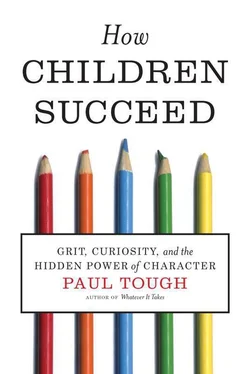

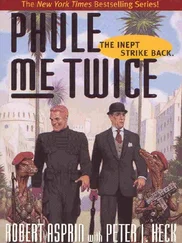
![Коринн МакКей - How to Succeed as a Freelance Translator [calibre 3.46.0]](/books/402693/korinn-makkej-how-to-succeed-as-a-freelance-transl-thumb.webp)


